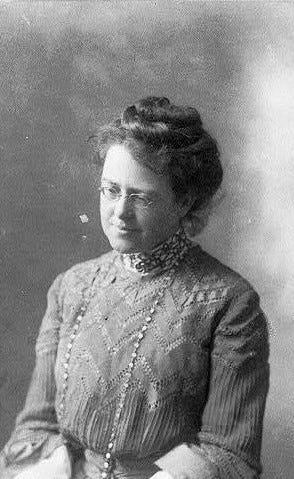Yesterday’s mail brought a wonder-filled book published in 1946 - A Century of the Catholic Essay, edited by Raphael Gross and published by J. B. Lippincott Co. It’s where I discovered the above quote of poet and essayist Louise Imogen Guiney (1861-1920) - it was her plea to fellow Catholic writers in the late nineteenth century.
Century includes prose from both obscure and well-known Catholic writers. Among them Alice Meynell, Helen Parry Eden, Agnes Repplier, John Henry Newman, Joseph Conrad, Francis Thompson, Chesterton, C.C. Martindale, Padric Colum, and a host of others.
Born in Boston, Guiney was the daughter of Civil War soldier-patriot General Patrick Guiney. Her literary contributions are relatively few due in large part to her father’s death at age forty-two, after which she was pressed into supporting her mother and aunt and to do so held jobs in a Massachusetts post office and as a cataloguer in the Boston Public Library.
Even so, noted journalist and author Christopher Morley (d. 1957) called her “one of the rarest poets and most delicately posed essayists this country has reared.”
Gross’s anthology includes two essays by Guiney: “On the Delights of an Incognito” and “The Puppy: A Portrait.”
She moved to England and in 1901 and worked at Oxford’s Bodleian Library where she began a large anthology of “Recusant Poets” - more than thirty poets from Thomas More to Ben Jonson. It was completed after her death and finally published in 1938 by Sheed & Ward. It’s available online and can be found here.
Her works include a collection of poetry titled Happy Endings and two volumes of essays - Goose-Quill Papers and Patrins. Here is an excerpt from the essay in Goose-Quill Papers titled “Notes Made by Troilus Gently” (Guiney writes “Gently was a middle-aged bookish friend of ours …”) -
The mind is fearless so long as there is no reproach of conscience. When that comes, come breakage and bondage and a host of terrors.
Goose-Quill Papers can be found online here.
I’ll share more from A Century of Catholic Essay in future posts - it’s a treasure trove of literature.




